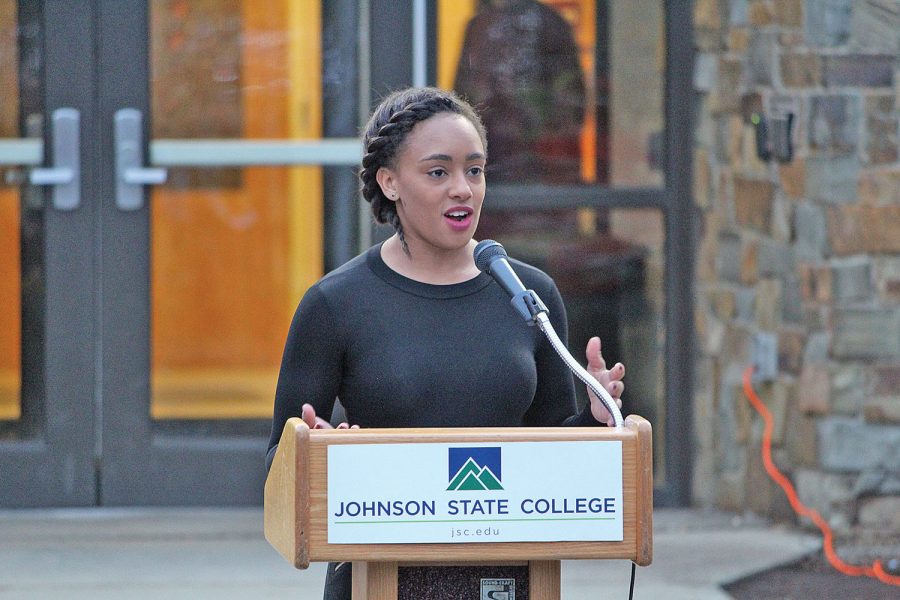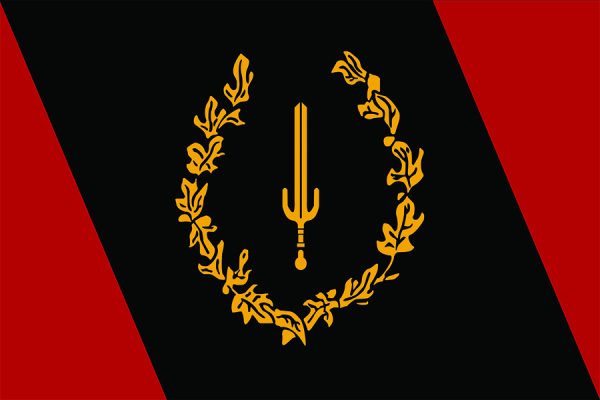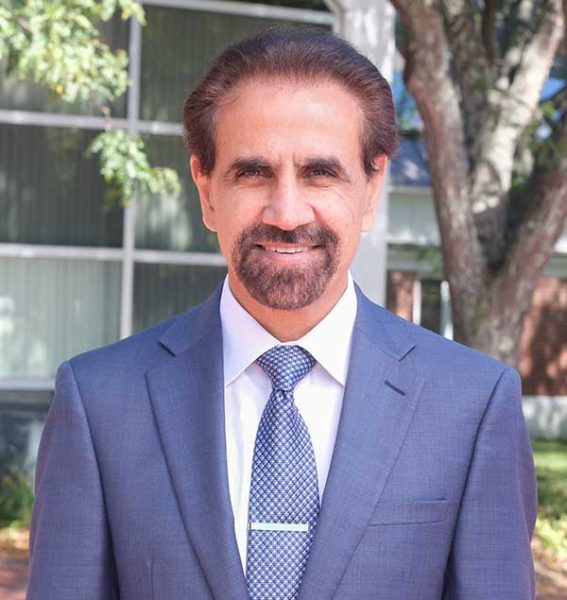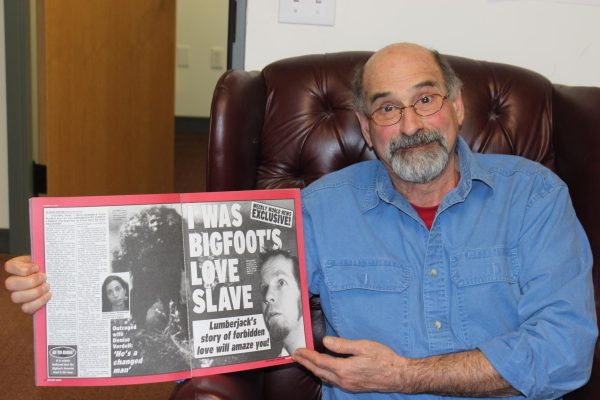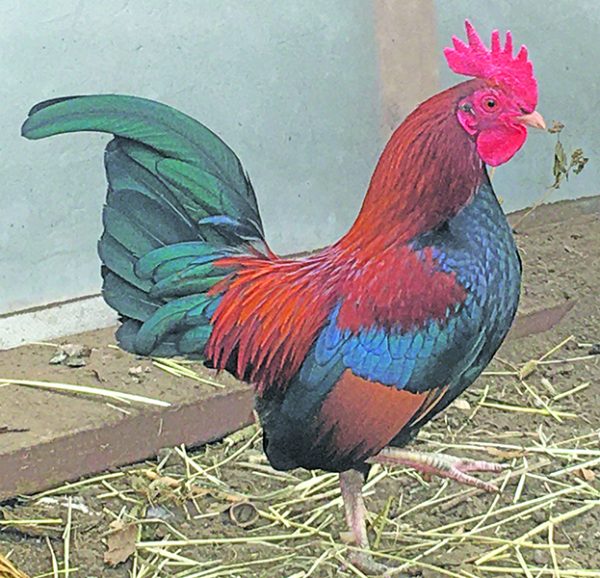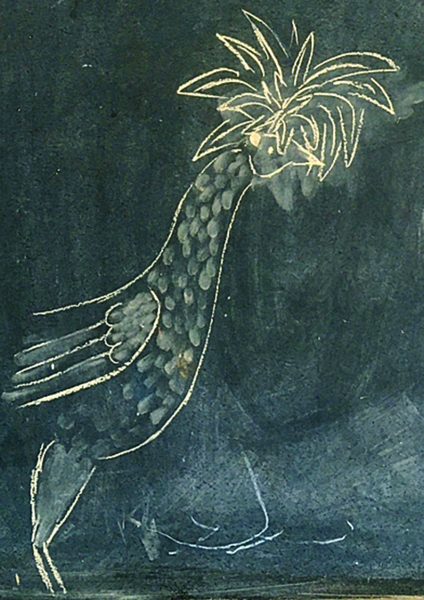Planting the flag of change
Brittney Malik
My name is Brittney Malik. I am a sophomore here at Johnson State. I grew up in Randolph, a small town right in the middle of Vermont. A town with many dirt roads and fancy old houses. A town with tons of family owned farms and locally owned businesses. A town with a population of almost five thousand people, but maybe 50 of us were people of color. To top it all off, I was the only person of color in my family. Growing up in a mostly white community and an all-white family, I found it easy to forget what color my skin was and what it meant to be a black person in America.
For the longest time, I thought I was like every other white kid in my class, just living life day to day, oblivious to prejudice and injustice happening in the world around me. Then I began to hear and read in the news about all the shootings and injustices happening to people of color, to people who looked like me, and it wasn’t until my senior year of high school that I finally realized that I was a black woman living in a society that unintentionally, or maybe even intentionally, looks at me as less than. I began to understand that I was and always would be treated differently than other people because of the color of my skin.
For the two years since that realization, I’ve begun to notice how I was being treated differently. I would get strange looks whenever anyone said the word “slave.” I was defined as the “designated minority friend” or “the black friend.” I would be followed in stores by a clerk while I harmlessly walked around, sometimes even if I was with other people. There came a point when I just could not avoid the subject anymore.
In high school, I became very interested in stand-up comedy and racial comedy. I wrote papers on how racial comedy affected stereotypes and how people of color were treated. I believed that if used correctly, comedy could be a great way to get society to hear what happening to black people, and hopefully society would begin to think about it as a problem. To test the theory, I created a five-minute comedic set talking about what its like to be a black person in a mostly white town. After that, many people approached me about my experiences and, although I had made them laugh, they were genuinely interested in creating change. Soon after, I began to write more papers and recite poetry about racism and the terrible things happening to people of color. Then UVM put up its Black Lives Matter flag, and that’s when I knew I had to push this project at Johnson.
At first, I was skeptical of this project because I knew of all the hatred UVM got and the Black Lives Matter movement got too. I was worried that people wouldn’t accept the statement the campus community would be making raising a flag like this one. Most of all, I was afraid people wouldn’t want to acknowledge the statement the Black Lives Matter flag holds, and the community wouldn’t feel comfortable beginning a much needed conversation about injustice. Luckily, all of my worries were put to rest when so many people turned out for the flag raising ceremony.
I am so grateful that I was able to push Johnson State to raise such an important flag, to push forward this conversation, to prevent people of color of being followed around because they look sketchy or for another unarmed black man to be shot to death because “he looks like a bad dude.” To me, putting up the Black Lives Matter flag means more than just supporting a movement. It means starting a conversation. It means moving out of our comfort zone and talking about the hundreds of black men, women and children shot because of the color of their skin. It means that we need to not be afraid of talk about injustice and racism that is happening, because no matter how much we want to ignore it or we want it to just go away, it won’t until we do something about it.
In the grand scheme of things, not only does the Black Lives Matter flag mean a lot, so does any other flag we raise on campus to bring awareness to a cause or an issue. Like I said before, it’s important to talk about issues like these in order to make a change. If we don’t talk about prejudice and injustice, it will just get swept under the rug, and we cannot live in ignorance when it come to people’s human rights and lives.


